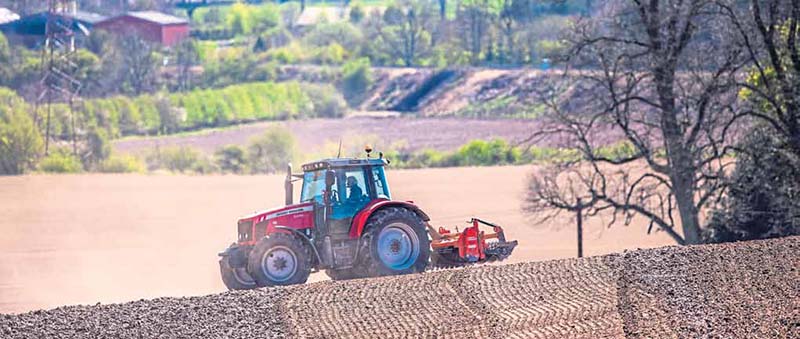Hamish Lean is an agricultural specialist and is head of Shepherd and Wedderburn’s rural team. He takes a look at farming after Covid-19.
Like all other sectors of the economy, the food, drink and agricultural industries in the north-east have been impacted by the Covid-19 crisis, the unprecedented lockdown and its effect on economic activity.
However, given that food production and distribution is one of the critical national infrastructure sectors in Scotland’s economy, Scottish agriculture and the agrifood sector have, broadly speaking, continued to operate and maintain production.
Farmers are used to operating in self-isolated situations so, from a day-to-day point of view, many of my clients have simply been trying to get on with things as normal.
This has been possible even within social distancing guidelines, an example being the continued operation of livestock marts – although these currently constitute a very different experience than previously because of social distancing requirements.
A visit to the mart is no longer a social highlight as well as part of normal business and many older members of the community are no longer able to attend.
The shutdown of the catering and hospitality industries, however, has proved particularly problematic for red meat and dairy producers. Cereal producers are unlikely to escape unscathed either.
The reduction in distilling and brewing is likely to have an adverse impact in due course. For those farming businesses with diversified enterprises, perhaps luxury holiday lets, farm shops and the like, the immediate effects have been very grave.

Those diversified businesses are likely to face longer-term problems including increased debt, reduced financial reserves and a knock-on effect on future investment.
There are employment problems to contend with, too. If there is a positive aspect to this health crisis and its impact on food production in Scotland it is that the general public is more aware than ever about the issues of food security and provenance. That has led to a greater willingness to shop locally.
However, difficult though the Covid-19 crisis has been, other problems haven’t gone away. There is undoubtedly a risk that we may exit the European Union without a trade deal and this is likely to be hugely damaging to Scottish agricultural exports.
Much has also been said about the difficulties caused, particularly to the soft fruit and vegetable sectors, of the damaging effect on the supply of seasonal labour.
In addition, Scottish agriculture, along with UK agriculture as a whole, is at risk of being a very poor relation in trade deals being negotiated with non-EU countries at UK Government level.
An attempt to amend the Agriculture Bill at Westminster to ensure that future trade deals would be obliged by law to safeguard that food imports into the UK were subject to the same or equivalent production, animal welfare and environmental protection standards was defeated.
US trade negotiators, for example, are unlikely to regard such restrictions as acceptable and Scottish farmers may well find themselves in the very unfortunate position of having to compete against imported food produced at a much lower cost and standard – and risk being economically disadvantaged as a result.
Having said that, Scottish agriculture, particularly that in the north-east, does have a potentially very bright future. Public policy in Scotland requires the industry to produce food to the highest standards, while also meeting challenging climate ambitions, not only achieving net zero in relation to carbon emissions by 2045 but also a 75% reduction in emissions by 2030.
These aims are not mutually exclusive and Scottish agriculture, having regard to our unique landscape and predominant land type, is well placed to achieve both.
As NFU Scotland has pointed out: “With the right support package in place Scottish agriculture can reduce its emissions while increasing profitability. When such support is in place and a clear vision is articulated by government and implemented in partnership with businesses, there is an opportunity for new policy frameworks to incentivise better land use management.
“A just transition around agricultural land use needs to embrace many connected issues relating to sustainable food production across economic environmental and social components.
“There is now an opportunity to reshape traditional farm support away from a blunt area-based approach to a targeted action-based system focused on those who are actively farming and crofting and which also incentivises change to agricultural land use practices to deliver positive environmental benefits – including climate emissions.”
The best farmers are entrepreneurial in nature and, with a supportive public sector, there is no reason to doubt the future success and prosperity of north-east agriculture, no matter how difficult things are in the short term.
